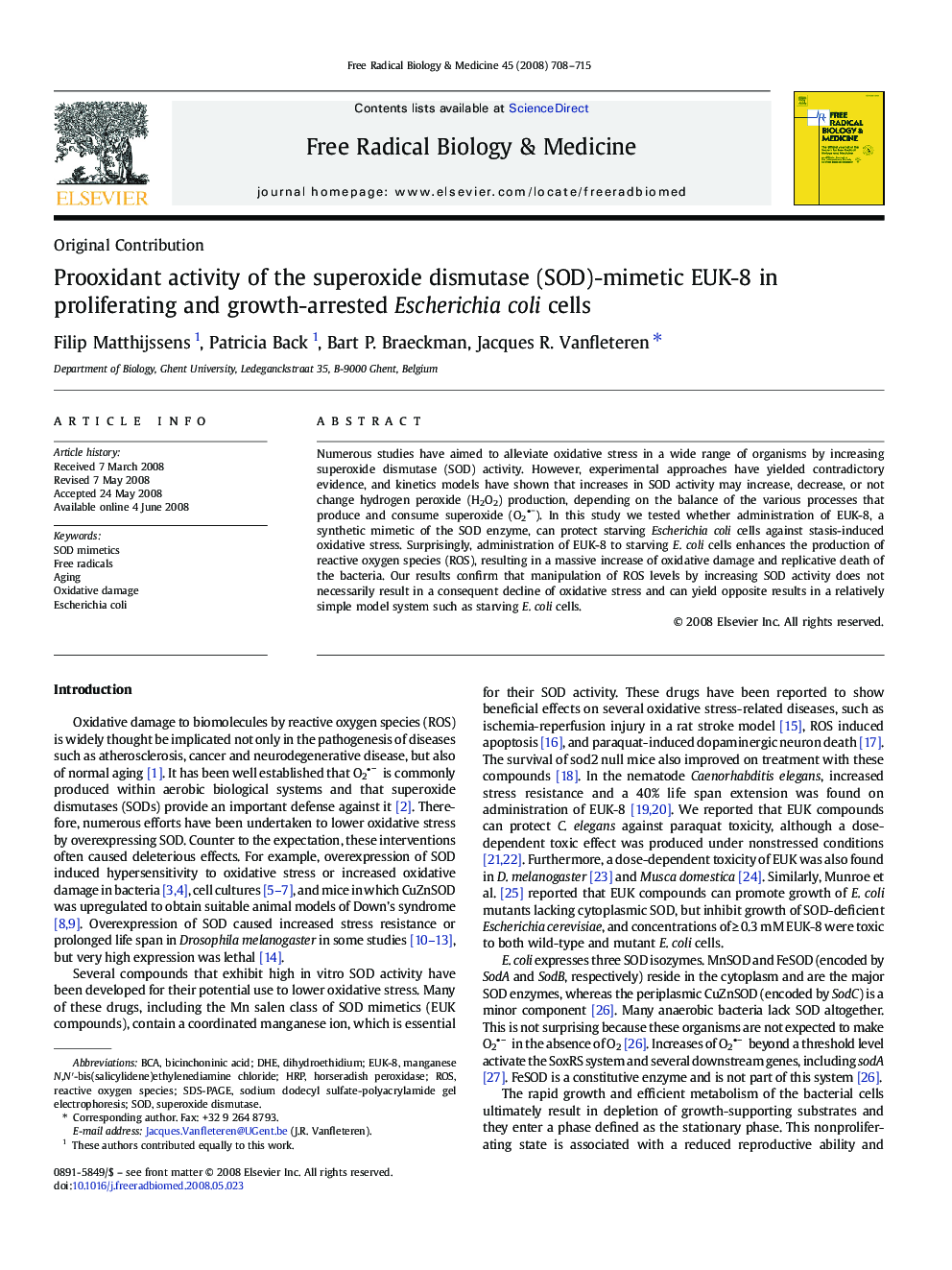| Article ID | Journal | Published Year | Pages | File Type |
|---|---|---|---|---|
| 1910849 | Free Radical Biology and Medicine | 2008 | 8 Pages |
Numerous studies have aimed to alleviate oxidative stress in a wide range of organisms by increasing superoxide dismutase (SOD) activity. However, experimental approaches have yielded contradictory evidence, and kinetics models have shown that increases in SOD activity may increase, decrease, or not change hydrogen peroxide (H2O2) production, depending on the balance of the various processes that produce and consume superoxide (O2−). In this study we tested whether administration of EUK-8, a synthetic mimetic of the SOD enzyme, can protect starving Escherichia coli cells against stasis-induced oxidative stress. Surprisingly, administration of EUK-8 to starving E. coli cells enhances the production of reactive oxygen species (ROS), resulting in a massive increase of oxidative damage and replicative death of the bacteria. Our results confirm that manipulation of ROS levels by increasing SOD activity does not necessarily result in a consequent decline of oxidative stress and can yield opposite results in a relatively simple model system such as starving E. coli cells.
